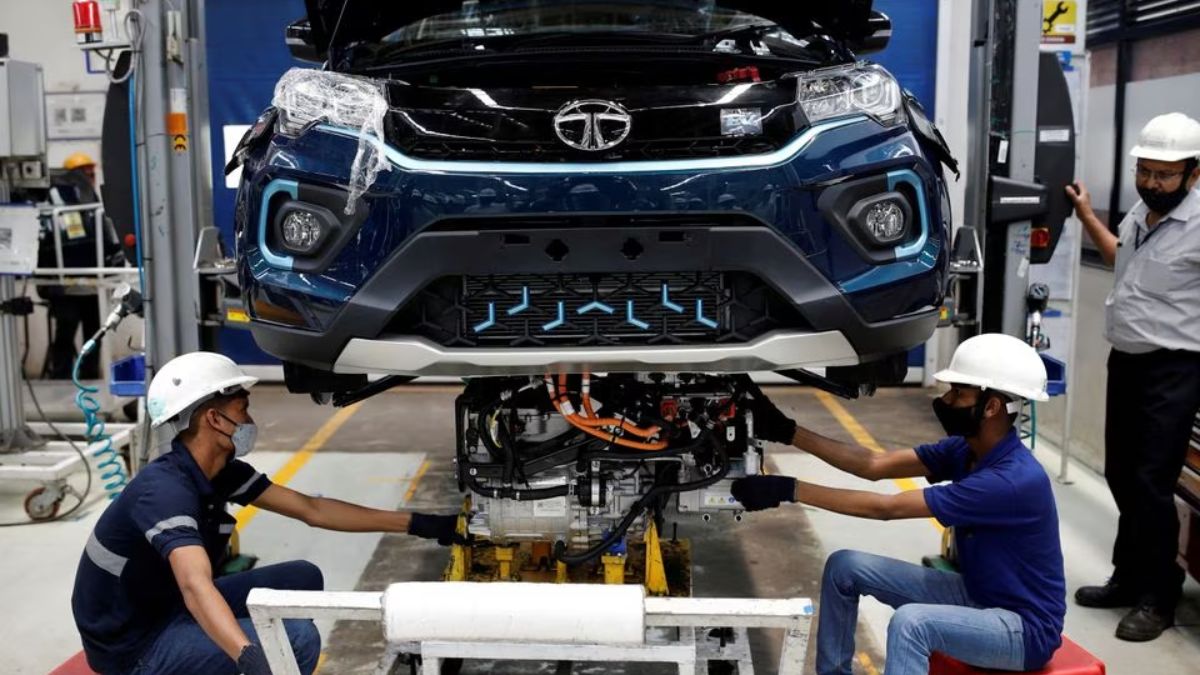- By Divanshi Sharma
- Sat, 09 Sep 2023 02:37 PM (IST)
- Source:JND
World EV Day 2023: You would think that the evolution of EVs happened in the last couple of years, right? Let us give you some facts that tell a different story. In 2011, the government of India launched an initiative known as the FAME-India initiative (Faster Adoption and Manufacturing of (Hybrid &) Electric Vehicles in India). The main aim of the initiative is to reduce the use of fossil fuels in India, which are bad for the environment and contribute to air pollution.
After the introduction of the FAME-India, electric vehicles for public transport were introduced including E-Buses and E-Rickshaws for public transport. However, no rise was seen in electric vehicles for private and commercial use. The demand or we can say trend for electric vehicles increased after Tata launched its Tigor EV first and then introduced the Nexon EV, which took the market by storm. At present, almost every car manufacturer is coming up with new electric cars and two-wheelers in the country.
Since then the Indian government has been actively promoting the development of the electric vehicle (EV) industry. The government has introduced and maintained policies that support the manufacturing, research and development of electric vehicles. These policies encompass tax incentives, subsidies, and investments in infrastructure. Given the growing EV market, there's a question on whether India will emerge as a future hub for EV manufacturing. To address this, Jagran engaged EV experts in discussions to provide valuable insights.
Does India have the potential to become a hub for manufacturing electric vehicles across the world?
- Pratik Kamdar, CEO and Co-Founder of Neuron emphasises that boosting manufacturing in this sector requires a robust EV infrastructure. This infrastructure will include battery production facilities, assembly plants, and supply chain networks. India's ability to compete globally in electric vehicle manufacturing is dependable on investments in infrastructure from both domestic and international companies.
- Nehal Gupta, Director of AMU Leasing, expressed on World EV Day 2023, that AMU Leasing Private Limited takes pride in recognizing India's capability to emerge as a worldwide centre for electric vehicle production. Our efforts are dedicated to speeding up financial accessibility and eco-friendly progress in smaller cities (Tier 2 and 3) all over India, with a special emphasis on fostering the growth of the electric vehicle community.
When will the prices of EV batteries come down?
- Pratik Kamdar highlighted that this World EV Day is particularly noteworthy due to significant advancements in lithium mining within India. The presence of lithium within the country has the potential to bring about a transformative shift, as it is a crucial element in electric vehicle batteries. The newly identified lithium deposits in India are expected to boost the entire electric vehicle supply chain and reduce reliance on imports.
Addressing the need for economic sustainability to promote EV adoption, Rohit Vadera, CEO of Pure EV commented that EV adoption is inevitable to achieve a cleaner and safer environment, and indeed for the economic sustainability of the country by significantly reducing our import bill on Oil. The government has been making continuous efforts through policy and promotion to support EV adoption. However, to achieve our zero emissions target, we at individual and organisational levels must embrace sustainability. There is a need to generate awareness among the communities and individual customers. This approach should be applied while maintaining affordability so that it is easier for consumers to switch to a greener future.
How much will the FAME subsidy contribute to becoming an EV manufacturing hub?
- Pratik Kamdar notes that ambitious initiatives such as the Faster Adoption and Manufacturing of Hybrid and Electric Vehicles (FAME) scheme, introduced by the Indian Government, have played a pivotal role in promoting the adoption and production of electric vehicles. These government programs have not only spurred domestic manufacturing but have also attracted foreign investments, ultimately strengthening India's status as a prominent global manufacturing centre.
Raghuveer Chandlavada, CEO of Aruta Bikes, asserts that India possesses the knowledge and expertise necessary for electric vehicle (EV) production. As the world's largest two-wheeler manufacturer, we are well-positioned to excel in EV technology. EVs rely heavily on electronics and software, areas in which India excels. With the right talent, a helpful environment, and government support, India can emerge as a global hub for EV manufacturing.
While the initial cost of an EV may be slightly higher than that of a conventional petrol or diesel vehicle, it eliminates the need for fuel. Considering the escalating fuel prices, the absence of this ongoing expense results in substantial savings, making EVs a financially viable choice in the long term. Also, EVs do not have complex mechanics and are relatively easier to maintain for a longer period of time, which also results in cost reduction. Taking these points into consideration, EVs are arguably a more viable choice in current circumstances.

